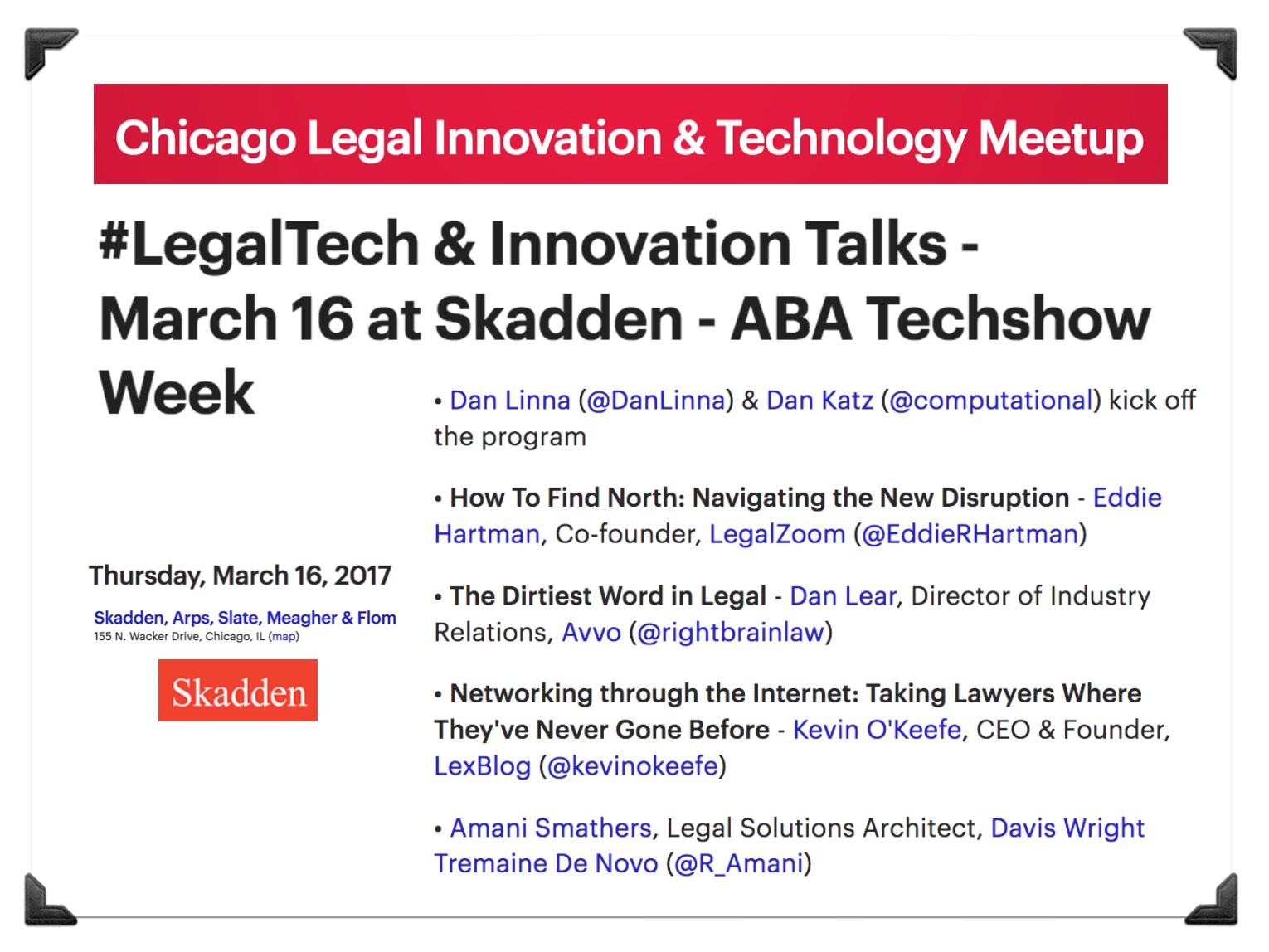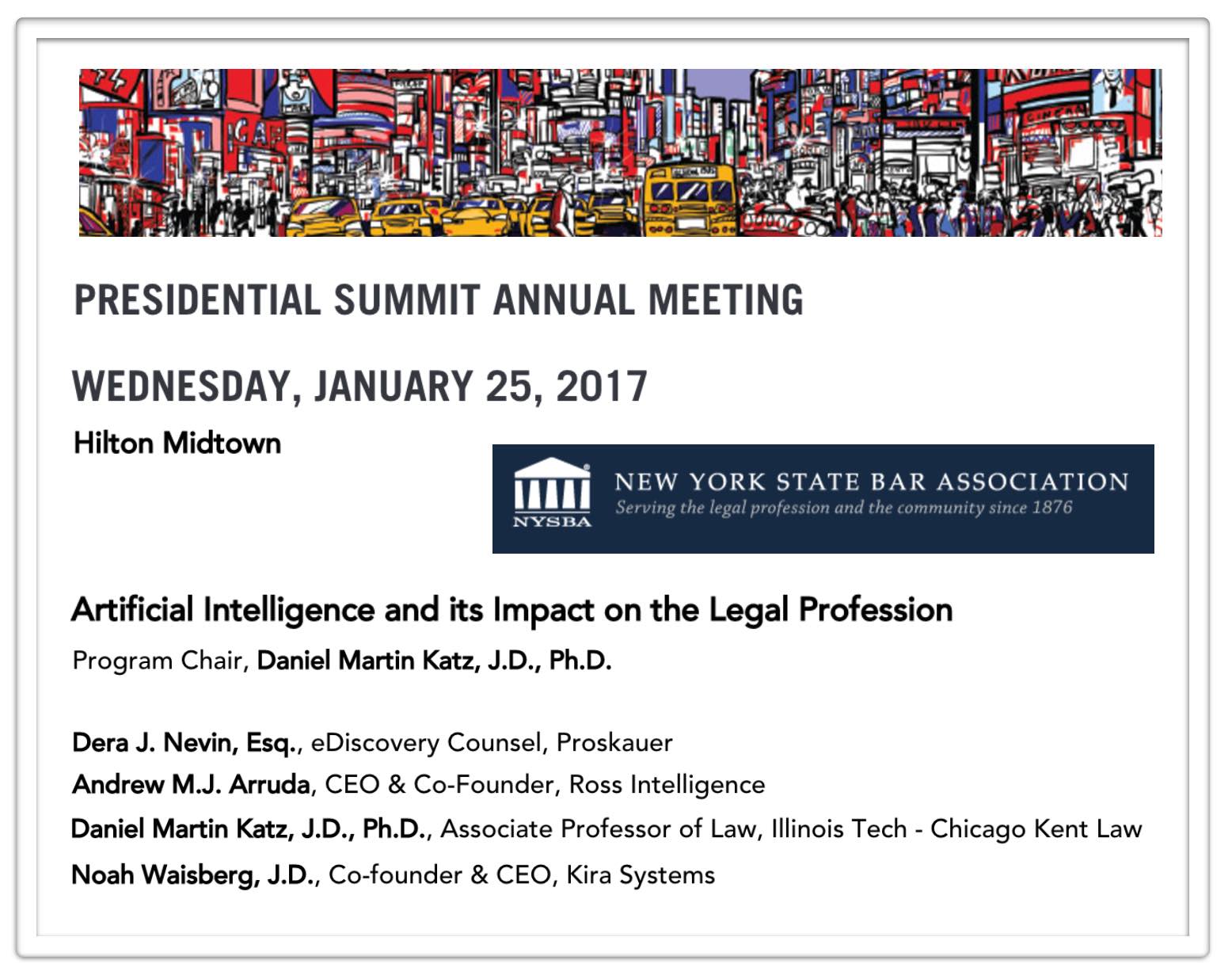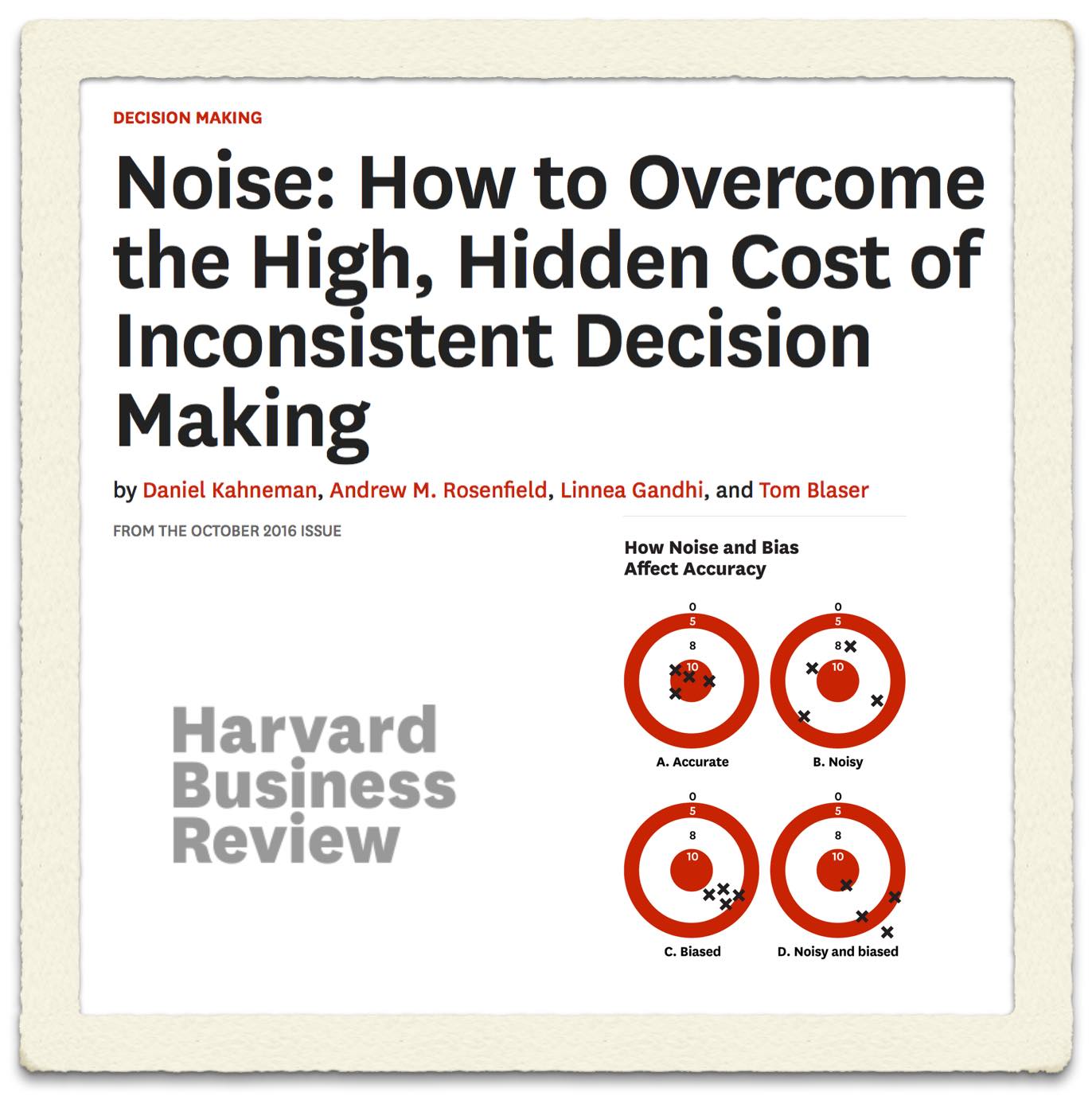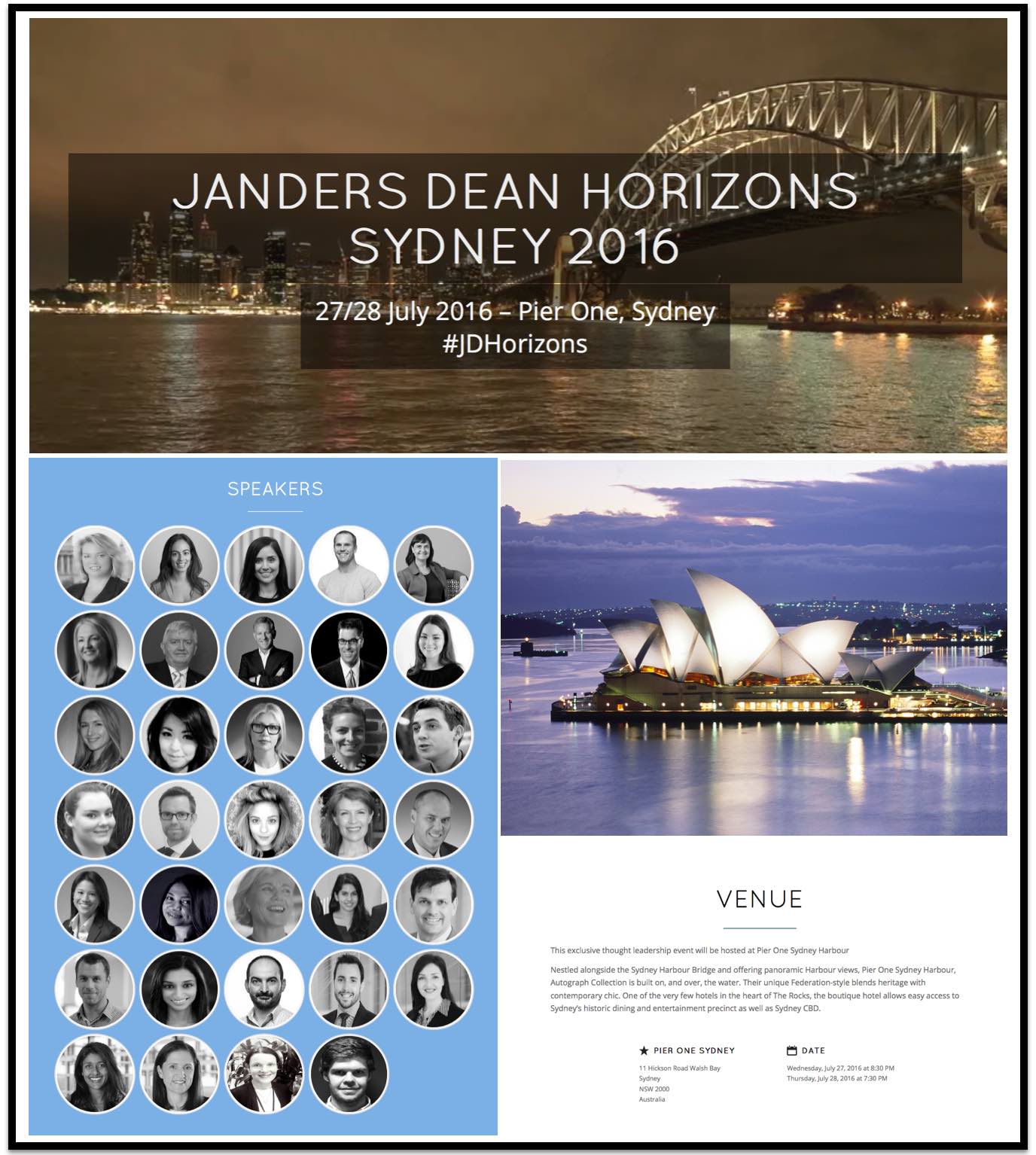An Updated Version of Artificial Intelligence and Law : A Six Part Primer
An Updated Version of Artificial Intelligence and Law : A Six Part Primer
 Join us at Skadden during ABA Techshow Week. We will begin at 5:00 p.m. with networking and kick off the program at 5:30 p.m.
Join us at Skadden during ABA Techshow Week. We will begin at 5:00 p.m. with networking and kick off the program at 5:30 p.m.
Dan Linna (@DanLinna) & Dan Katz (@computational) kick off the program
How To Find North: Navigating the New Disruption – Eddie Hartman, Co-founder, LegalZoom (@EddieRHartman)
The Dirtiest Word in Legal – Dan Lear, Director of Industry Relations, Avvo (@rightbrainlaw)
Networking through the Internet: Taking Lawyers Where They’ve Never Gone Before – Kevin O’Keefe, CEO & Founder, LexBlog (@kevinokeefe)
Talk Title TBD – Amani Smathers, Legal Solutions Architect, Davis Wright Tremaine De Novo (@R_Amani)

I am pleased to serve as a Program Chair and Speaker at the Plenary Presidential Summit @ New York State Bar Association Annual Meeting. Today’s topic will be Artificial Intelligence and its Impact on the Legal Profession. Joining me on the panel are the following panelists covering the following topics:
What is Artificial Intelligence? What is Machine Learning?
Dera J. Nevin, eDiscovery Counsel, Proskauer
What are Some Applications of Artificial Intelligence, Machine Learning, and Predictive Analytics in Law?
Andrew M.J. Arruda, CEO & Co-Founder, Ross Intelligence
Daniel Martin Katz, J.D., Ph.D., Associate Professor of Law, Illinois Tech – Chicago Kent Law
What are the Labor Market Impacts? More Jobs, Less Jobs, Different Forms of Legal Jobs and Legal Work?
Noah Waisberg, J.D., Co-founder & CEO, Kira Systems
 From the article: “The prevalence of noise has been demonstrated in several studies. Academic researchers have repeatedly confirmed that professionals often contradict their own prior judgments when given the same data on different occasions. For instance, when software developers were asked on two separate days to estimate the completion time for a given task, the hours they projected differed by 71%, on average. When pathologists made two assessments of the severity of biopsy results, the correlation between their ratings was only .61 (out of a perfect 1.0), indicating that they made inconsistent diagnoses quite frequently. Judgments made by different people are even more likely to diverge. Research has confirmed that in many tasks, experts’ decisions are highly variable: valuing stocks, appraising real estate,sentencing criminals, evaluating job performance, auditing financial statements, and more. The unavoidable conclusion is that professionals often make decisions that deviate significantly from those of their peers, from their own prior decisions, and from rules that they themselves claim to follow.”
From the article: “The prevalence of noise has been demonstrated in several studies. Academic researchers have repeatedly confirmed that professionals often contradict their own prior judgments when given the same data on different occasions. For instance, when software developers were asked on two separate days to estimate the completion time for a given task, the hours they projected differed by 71%, on average. When pathologists made two assessments of the severity of biopsy results, the correlation between their ratings was only .61 (out of a perfect 1.0), indicating that they made inconsistent diagnoses quite frequently. Judgments made by different people are even more likely to diverge. Research has confirmed that in many tasks, experts’ decisions are highly variable: valuing stocks, appraising real estate,sentencing criminals, evaluating job performance, auditing financial statements, and more. The unavoidable conclusion is that professionals often make decisions that deviate significantly from those of their peers, from their own prior decisions, and from rules that they themselves claim to follow.”
Suffice to say we at LexPredict agree. Indeed, building from our work on Fantasy SCOTUS where our expert crowd outperforms any known single alternative (including the highest ranked Fantasy SCOTUS player), we have recently launched LexSemble (our configurable crowdsourcing platform) in order to help legal and other related organizations make better decisions (in transactions, litigation, regulatory matters, etc.).
We are working to pilot with a number of industry partners interested in applying underwriting techniques to more rigorously support their decision making. This is also an example of what we have been calling Fin(Legal)Tech (the financialization of law). If you want to learn more please sign up for our Fin(Legal)Tech conference coming on November 4th in Chicago) (tickets are free but space is limited).
Above is my keynote address at the Janders Dean Legal Horizon Conference in Sydney. It is a mixture of some earlier talks I have given – together with some new materials.

Today is day one of the two day Janders Dean Legal Horizon Conference here in Sydney – I look forward to kicking off Day 2 tomorrow with my address to the 200+ delegates!